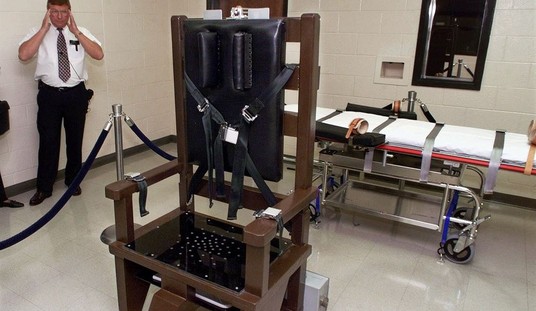It’s fun sifting through Twitter commentary about molnupiravir and seeing how it divides into two groups. Well, three groups: There are the experts who are excited about it, of course. But everyone else wants to believe either that the drug is just ivermectin by another name and that fact is being covered up by the sinister face-saving scientific elites or that the drug is a poor man’s ivermectin that can’t possibly work as well as America’s favorite dewormer-turned-COVID-panacea will.
That last group has been cheered by these results from India today.
Two Indian drugmakers have requested permission to end their late-stage trials on Merck & Co’s experimental antiviral drug molnupiravir in moderate COVID-19 patients.
The two companies separately sought permission to end trials in the case of moderate COVID-19 patients after having submitted interim clinical trial data around the effectiveness of the drug in treating this category of patients, the committee disclosed, throwing into question the efficacy of the experimental drug in improving outcomes for patients with moderate cases of COVID-19.
Separately, a senior source at India’s drug regulator told Reuters that molnupiravir had shown no “significant efficacy” against moderate COVID-19 cases.
The drug wasn’t a total bust. Although it didn’t work on patients with “moderate” COVID, an Indian regulatory source told Reuters that “the effective efficacy is towards mild cases.” Maybe it needs to be administered early in the course of illness to work. That wouldn’t be surprising, if so, as the same is true of remdesivir, currently the only authorized antiviral treatment for COVID. In fact, one of molnupiravir’s developers told The Atlantic this week that the earlier you take it, the better off you are. Even if it’s less effective for people with moderate COVID, it might still be helpful as a prophylactic, to prevent people who’ve just tested positive from becoming severely ill.
Still, it’s hard to square the Indian data with Merck’s own findings from last week. The subjects in Merck’s trial were unvaccinated people who had “mild-to-moderate COVID-19” and “at least one risk factor associated with poor disease outcome at study entry,” and their results showed a huge benefit. Do Indian scientists define “moderate” cases differently than American ones do?
It’s possible that Merck jumped the gun on its drug in its eagerness to hype the results, as it has an obvious financial incentive to do so. (The company is selling courses of the treatment to the U.S. government for 40 times what it costs to make.) It’s also possible that the Indian trials are wrong somehow. Wouldn’t be the first time recently.
Either way, what’s the harm in rolling out the drug now to patients in need? There’s no evidence from either the Merck trial or the Indian trials that molnupiravir causes meaningful side effects. In fact, in Merck’s trial the control group was more likely to experience side effects than the test group was. Dr. Marty Makary writes today that the FDA should treat the drug the same way it treated convalescent plasma last year, authorizing it for compassionate use to patients in dire need while it weighs whether to authorize it for broader emergency use. Doctors will get to see firsthand whether it works or not while the FDA weighs the clinical data:
[T]he FDA could allow compassionate use of molnupiravir now by activating what is known as an expanded-access protocol, ahead of the drug’s formal evaluation…
Compassionate use doesn’t preclude further study. The drug could be administered broadly on a protocol, and outcomes could be tracked closely, as was done with convalescent plasma. Those results can help inform the FDA’s review, pending full approval.
Public-health officials may be hesitant to talk about therapeutics whose promise could give people an excuse to avoid vaccination. That’s a legitimate concern. I’ve had to explain to vulnerable patients that they shouldn’t rely on monoclonal antibodies as a substitute for getting vaccinated. But we can strongly encourage vaccination and be candid about the data on therapeutics at the same time. Such honesty would also help restore the damaged credibility of public health.
I wouldn’t worry so much about patients demanding molnupiravir in lieu of getting vaccinated, since there’s at least some evidence that the drug is highly effective. I’d worry about them concluding due to pure motivated reasoning that molnupiravir is inferior to ivermectin, a “medical deep state” red herring to steer people away from the drug that “really” works.
Speaking of which, read this Fortune piece about an early line of attack on Merck’s drug, that it supposedly risks generating new and dangerous variants because it scrambles the genome of the virus as it replicates. That’s unlikely, though: “Merck’s analysis has shown that the errors induced by the drug are spread more or less randomly throughout the viral genome. That means that the virus has fewer opportunities to develop mutant forms that will overcome those errors.” The course of treatment is short too, giving the virus less opportunity to mutate in response to the “error catastrophe” caused by molnupiravir. If I understand the science, fearing that the drug will create new variants is a bit like thinking that rearranging words randomly in a Shakespeare play would improve it rather than reduce it to gibberish.








Join the conversation as a VIP Member